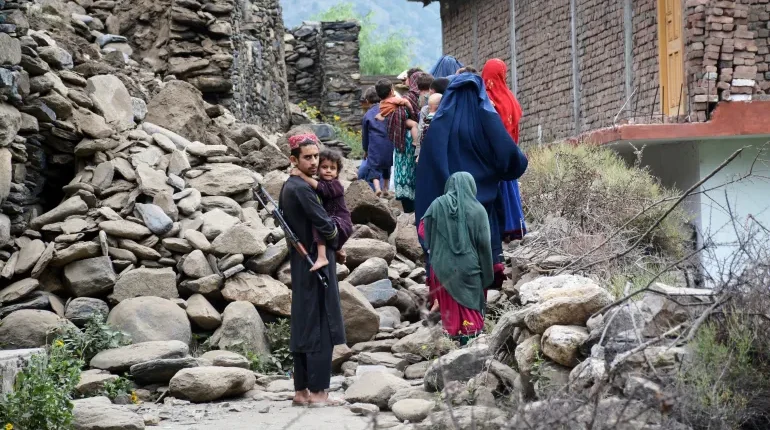Rescuers are trying to reach remote areas in eastern Afghanistan’s Kunar region after a devastating earthquake killed at least 1,411 people and wounded 3,124 others, according to Taliban government spokesman Zabihullah Mujahid.
On Tuesday, Mujahid wrote in a post on X that 5,412 houses were destroyed due to the earthquake’s intensity.
Kunar’s head of disaster management, Ehsanullah Ehsan, said earlier on Tuesday that efforts would be extended to more of the region’s mountainous areas.
“We cannot accurately predict how many bodies might still be trapped under the rubble,” Ehsan said.
“Our effort is to complete these operations as soon as possible and to begin distributing aid to the affected families,” he said, adding that some of those who were injured have been transferred to hospitals in neighbouring Nangarhar province and the capital, Kabul.
Amid ongoing recovery efforts, the US Geological Survey (USGS) reported that northeastern Afghanistan was hit by a magnitude 5.2 earthquake, which struck at a depth of 10 km (6.2 miles).
One of the deadliest earthquakes the tremor-prone country has experienced struck just before midnight on Sunday. It was a shallow, magnitude 6 quake with its epicentre at a depth of about 8km (5 miles).
The mountainous terrain in the area is making rescue work difficult. Volunteers have been unable to reach isolated areas along the Pakistani border, where mostly mud-brick homes have been destroyed.
According to Ehsan, gaining vehicle access to the narrow mountainous roads in the area has been the main obstacle for relief work. The roads have been damaged by the quake or covered in landslides.
Obaidullah Stoman, 26, who travelled to the village of Wadir in Kunar’s Nugral district to search for a friend, told the AFP news agency that there was “only rubble left”.
“I’m searching here, but I didn’t see him. It was very difficult for me to see the conditions here,” he said.
Akhlaq, 14, who was injured and evacuated to the hospital, lost five members of his family to the earthquake in the remote village.
“Our whole house collapsed. My brothers and father were all buried. Only I survived and made it out,” he told AFP.
“Then I heard my father’s voice, and I managed to rescue him,” he said, adding, “There are victims who are still under the rubble, but there is nobody to help them and pull them out.”
The lack of road access has forced emergency response teams to rely on helicopters, Indrika Ratwatte, the United Nations humanitarian coordinator in Afghanistan, said at a news briefing in Kabul.
“There’s been lots of landslides and rock falls, and access has been very limited to everybody in the first 24 hours,” he said.







